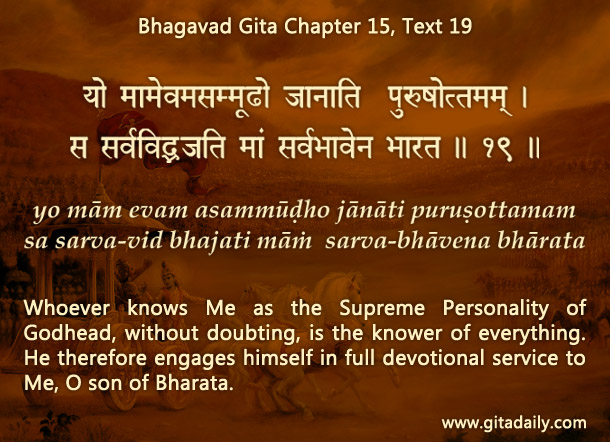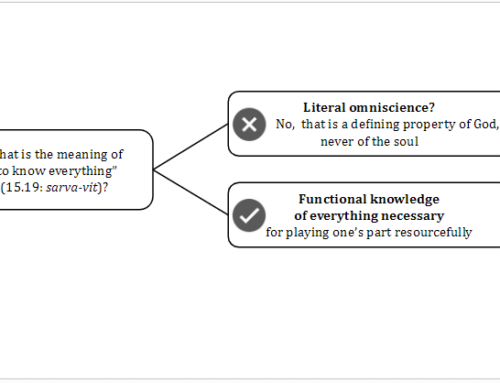Some spiritualists conceive of liberation as a state of oneness or integration with the Absolute. The Bhagavad-gita acknowledges this conception, but also nuances our understanding of integration.
Gita wisdom explains that we become separated from the Absolute because of illusion. And when we become free from illusion, we become integrated with the Absolute. Significantly, this integration is characterized by harmonizing, not merging.
The Gita (15.19) states that the undeluded understand Krishna to be the supreme reality, thus becoming knowers of everything and becoming wholeheartedly devoted to him. The next verse (15.20) declares that this understanding is the most confidential revelation of scripture – those who live according to it attain perfection. That the perfected are wholeheartedly devoted implies that perfection doesn’t mean merging with the Absolute; it means lovingly harmonizing with the Absolute, making our intention one with his.
Oneness in intention is also seen in the Gita’s conclusion (18.73), wherein Arjuna acknowledges that Gita wisdom has freed him from illusion. Yet such freedom doesn’t cause him to merge into Krishna; it inspires him to make Krishna’s will his will.
The Gita’s content and context both convey that spiritual perfection centers on purifying our intention. Presently, our intention is misdirected by impurities which make us believe that worldly objects will give us greater pleasure than Krishna. But when we practice bhakti-yoga as a discipline, we connect with him and start perceiving his supreme attractiveness. Gradually, we appreciate that serving him is in our best interests because he is not just the source of the supreme pleasure; he is also our greatest well-wisher (05.29). Thus, we feel inspired to contemplate him internally and to serve him externally.
When our intention becomes one with his, we attain the highest liberation, rising from this world of death and distress to his supreme abode of eternity and ecstasy.

To know more about this verse, please click on the image
Explanation of article:
Podcast:


Leave A Comment